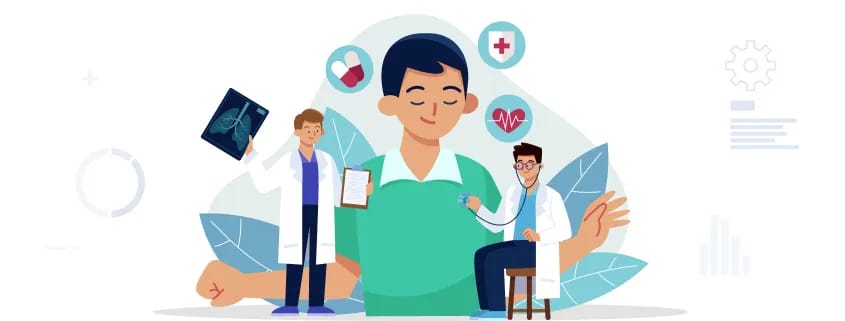Why You Need to Digitalize and Translate Medical Records

Documenting the medical records of a patient is an integral part of the whole process. It helps with setting and storing a medical history for the patients. Moreover, the translation of these medical records into the required languages allows them to make these accessible to everyone involved in the treatment including physicians and healthcare staff. Medical records are one part of the medical translation. Translating relevant medical details is imperative for hospitals and healthcare centers to help patients and persuade them of their needs.
The medical records translation services need to be accurate and precise. It is a need of every hospital and healthcare center due to the benefits and positive outcomes that it yields. A number of medical companies, healthcare centers, and physicians are adamant, even in this advanced age, and deny the importance of medical translation. However, post-pandemic COVID-19, the importance of medical translation has proved its worth. Medical records contain sensitive information. Therefore, patients need to know their records in their relevant language. Medical practitioners also need to keep a check personally on the whereabouts and medical history of their patients. It is even crucial for patients who are traveling from other countries and regions.
Hence, it is important for hospitals to ensure that they translate their medical records into the relevant languages and furthermore translate the content and keep it available and accessible by digitalizing the content.
These are the important reasons that make it evident for the medical records and medical device localization.
To improve patient care
The ultimate reason for medical records translation is improved patient care. A patient is a person who is suffering from the disease. He deserves to be facilitated in the best possible manner. Many of them travel hundreds of kilometers to get better and more effective treatment overseas. When there are language barriers and patients are unable to comprehend their information and communicate about the same, they suffer a lot in making informed decisions. This further leads to mistakes and complications. The translation of medical records and making them available online on the hospitals’ portals not only satisfies patients but is also important to improve patient aftercare. Moreover, it also helps the patient, their family, and the healthcare providers with their treatment options and guides them to make smart decisions.
Makes it easy for patients and practitioners
Translation and medical interpretation are also vital for making the whole process of treatment easier and more convenient for patients and practitioners. This is possible and achievable with accurate translation and digitalization of medical records. Transparent communication is a prerequisite to better and more effective treatment. The patient and his team of care providers need to be clear with their patients. Likewise, the patient should also make sure he communicates clearly and convey everything that is important and relevant to his disease and treatment. Once the medical record is active and available digitally, both parties get satisfied and can easily continue to break the language barriers and communicate whatever they find necessary. It is important that everyone involved ensure that they are on the same page. They can use multiple portals, forums, and software for that purpose.
A number of medical software are also being localized for the patients’ and physicians’ feasibility. These steps are introduced to ensure that there are minimum mistakes and ambiguities. However, medical companies should ensure that they work on medical software localization vigilantly to avoid mistakes and catastrophic consequences.
To comply with regulations
Complying with regulations is one important factor of translation and medical interpretation services. The Health Insurance Portability and Accountability Act (HIPAA) takes care of the regulations and compliance, which includes using a HIPAA compliant electronic form to collect and store patient health information. The digitalization of the medical records can also be easily accessed by the HIPAA people and they can analyze the content and the terms that they have defined for these matters to follow. The translation of the medical records also makes it easy for the relevant authorities to keep a regulated check. They can check and verify the details at their convenience whenever needed.
To promote cultural competence
Cultural competency is another reason that can easily be maintained and met through medical translation. The healthcare staff and the physicians of the patients need to be aware of the cultural background of the patients. There are cultural needs of the patient that the health care centers need to know and endorse for their relevant patients. Taking the medical records to the online portals also helps to navigate through this challenge seamlessly. They can access the patient’s record quickly and can scan their record to know the cultural factors so that they can treat the patient accordingly and not offend him by any means. Also, there are many sensitivities involved too. Therefore, digitalizing the patient info and record turns helpful for this factor too.
Conclusion
Medical translation is beneficial for one and all. This also helps people suffering from different diseases all over the world. The medical records of the patients are particularly important to ensure that they get improved care, and can communicate transparently, ensuring safety, and compliance. It further helps with promoting cultural competence and ascertains that all patients receive the best possible care adhering to their needs and treatment requirements.



